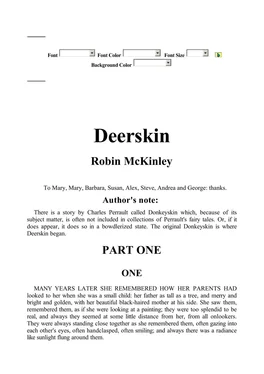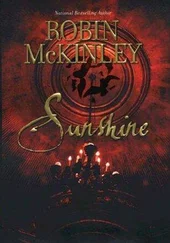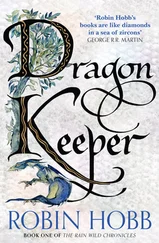Deerskin - Robin McKinley
Здесь есть возможность читать онлайн «Deerskin - Robin McKinley» весь текст электронной книги совершенно бесплатно (целиком полную версию без сокращений). В некоторых случаях можно слушать аудио, скачать через торрент в формате fb2 и присутствует краткое содержание. Жанр: Старинная литература, на русском языке. Описание произведения, (предисловие) а так же отзывы посетителей доступны на портале библиотеки ЛибКат.
- Название:Robin McKinley
- Автор:
- Жанр:
- Год:неизвестен
- ISBN:нет данных
- Рейтинг книги:4 / 5. Голосов: 1
-
Избранное:Добавить в избранное
- Отзывы:
-
Ваша оценка:
- 80
- 1
- 2
- 3
- 4
- 5
Robin McKinley: краткое содержание, описание и аннотация
Предлагаем к чтению аннотацию, описание, краткое содержание или предисловие (зависит от того, что написал сам автор книги «Robin McKinley»). Если вы не нашли необходимую информацию о книге — напишите в комментариях, мы постараемся отыскать её.
Robin McKinley — читать онлайн бесплатно полную книгу (весь текст) целиком
Ниже представлен текст книги, разбитый по страницам. Система сохранения места последней прочитанной страницы, позволяет с удобством читать онлайн бесплатно книгу «Robin McKinley», без необходимости каждый раз заново искать на чём Вы остановились. Поставьте закладку, и сможете в любой момент перейти на страницу, на которой закончили чтение.
Интервал:
Закладка:
She wished winter would stay, forever. She brushed aside questions of food for themselves and the fire when she was in this mood. And perhaps it would stay. She had no idea how far Ash and she had come; how many days they had spent travelling, how many leagues they had crossed. Perhaps here in these woods, far from anywhere, perhaps they had wandered into the forest of the farthest north, where winter stayed all the year around but for the brief vast burst of flowers and small stubborn fruits of high summer, before the first blizzard of autumn covered the blinking, sun-dazed earth once again.
She had found a pair of snow-shoes lying under the blankets at the bottom of the bed-bin. They fitted the too-large boots, but for a long time she did not think of trying them, because she knew her hip would not bear the added strain of splay-legged walking.
But as she grew stronger, she thought she would try; by then she had grown fairly clever at wrapping her feet in enough blanket and cloak strips to wedge them firmly into the boots.
She had never worn snow-shoes before, but they were reasonably self-explanatory, and after walking out of them a few times from misreading how the straps went, and then falling down a few times by misguessing how to walk in them, she grew adept. She trudged along sometimes in Ash's wild wake; she, lightly staying on top of the snow like a web-footed bird, yet had nothing of the aerial grace of the long-legged dog. And Ash, particularly once she entered the trees, with their lesser snow-cover, could disappear in a few bounds.
Lissar worried about bears and dragons, but she had seen signs of neither (didn't they sleep in the winter? Well then, but what about wolves and iruku and toro?) and tried to leave all such questions to fate, which had brought them to their haven in the first place-or Ash had, which came back to Ash again. But the conclusion then was perhaps the more comforting-that Ash could take care of herself.
Ash never stayed out so long that Lissar's will not to worry was tried too hard.
Ash-Lissar remembered, in the hazy, fencedoff way that memories of her former life presented themselves to her-had never liked the cold much, even in that gentler weather they had once been used to. She could think about the weather, she found, so long as she was careful not to press out from it too far. So she remembered wearing heavy clothes and shivering, but she thought that the sort of cold that sealed the nose and froze the throat was new to her. Lissar did know snow; knew she knew it. And she had heard rumors of things like snow-shoes, which was how she recognized the great, round, funny-looking platters of woven leather in the first place; for she knew also that she had never seen such things before, nor had any need of them. Cautiously she thought about why she had never had need of them: because she never had cause to go walking in deep snow, or because she was unaccustomed to deep snow?
The latter, she thought. But-this was troubling-the former kept obtruding. She kept having odd fragments of almost-memory, like her vision of ceremonial robes, of being waited upon; but she was an herbalist's apprentice, and herbalist's apprentices are waited on by nothing but ants and spiders and their own imaginations . . .
apparently she had once had a vivid imagination.
Rumor and half-memory told her other things too, and hesitantly she greased, with the rendered fat of Ash's kills, little enough as it was, the webbing on the snow-shoes, which in the long term may have been a good thing, but in the short term what she produced was a sticky mess. The neat, even-stretched weave became somewhat less neat and a good deal less tightly stretched, and the whole affair became infinitely less easy and more frustrating to handle. But Lissar persevered; perseverance was the central lesson of all she had learnt since ... since Ash and she had first set out on their journey.
Lissar followed Ash slowly on her snow-shoes, each time wondering again at the vast space between the leaping pawprints and the descending pawprints. She began picking up dropped branches from the trees, and dragging them back to the hut; if she wanted winter never to end, she had to solve their second most pressing problem, their wood-store. Ash was doing her part; Lissar would try to do hers. As she looked for dead wood, peering at branches, a little more of her apprenticeship came back to her, and she recognized a few more edible plants available to her even in the winter. There were the dry, crumbly, tasteless but edible, shelf-like tree mushrooms: She painstakingly peeled bits of bark off young birch and caradal trees-not too much, not to kill the tree-and dug more roots along the occasional wet spots near the stream, although this always made her hip and shoulder ache. Tea she made from erengard leaves, and the bitter brew gave her strength.
Even without the added stress of digging her hip still hurt and prevented her from straying very far, although she found to her surprise that once she was accustomed to it, the odd tiptoe-and-slide motion necessary in the snow-shoes was gentler than ordinary walking, in spite of having to move wide-legged. Her arm now hurt only if she used it too strenuously, so she took it back out of its sling, though its range of motion remained very limited.
She had begun to keep track of each seven days as it passed But as she did not know how much time she had lost in coming to this place, and in the first exhausted days after, it was a rather whimsical exercise. But it gave her some few standards that her old habits of mind found comforting: she wore her sling for four spans of seven days, for example, before she took it off; and every seven days she treated herself to another bath.
As the weeks passed her wounds did appear to heal, and her skin grew smooth again, although some scars remained, and there was a tightness down the skin of her back and along one side of her neck that she assumed was also scars, though she could see neither, and the sensations under her fingers were inconclusive. The part of her back that her stiff shoulder would not let her touch remained unexplored, and there was a space down her jaw and throat that had no feeling at all, which was confusing, and she could not there read what her fingers told her. She was not sorry for the lack of any looking-glass.
She and Ash did not eat so well--or perhaps it was that they worked so hard-that their ribs ever disappeared under a layer of flesh which, in winter weather, might have been a pleasant thing to have. But Lissar noticed that her arms and legs, even the weak shoulder and painful flank, developed a new kind of wiry roundness, that of muscle; and she was both pleased and puzzled by this, for she knew that this, too, was new to her. Had she led so lazy a life before then? Perhaps picking herbs, and bundling them to dry (and brushing away the ants and spiders), and learning their names, was not such arduous work. Perhaps someone else had chopped the wood for Rinnol's stove.
Ash's wounds disappeared completely; even ruffling the fur down her back, Lissar could not see exactly where her hurts had been. The one reminder of her ordeal was a knot to one side of the base of her skull, a small knot, much smaller than the original swelling, and much less tender. But it was still there, and still sore to the touch. Ash winced away when Lissar's hand found it.
But something troubled Lissar still, something beyond all the shadows in her mind: something real, tactile, immediate. Her own ribs still showed, and the new solidity of her limbs was muscle; but her belly grew bloated, till the skin stretched tight over it. Each week for several weeks now she had rubbed her belly when she took her bath, and wondered, and she looked at herself again on this particular afternoon and wondered again. At first she had been able to ignore it, to suppose she was imagining it, but that was no longer possible. The bulge was bigger than it had been, and unmistakable, and her body seemed to have rearranged itself somehow around it. Her ribcage was a different shape, and the slope of her breasts seemed changed. The wondering was not easy or comfortable, and the uneasiness moved into her stomach, and she felt dizzy and ill.
Читать дальшеИнтервал:
Закладка:
Похожие книги на «Robin McKinley»
Представляем Вашему вниманию похожие книги на «Robin McKinley» списком для выбора. Мы отобрали схожую по названию и смыслу литературу в надежде предоставить читателям больше вариантов отыскать новые, интересные, ещё непрочитанные произведения.
Обсуждение, отзывы о книге «Robin McKinley» и просто собственные мнения читателей. Оставьте ваши комментарии, напишите, что Вы думаете о произведении, его смысле или главных героях. Укажите что конкретно понравилось, а что нет, и почему Вы так считаете.












